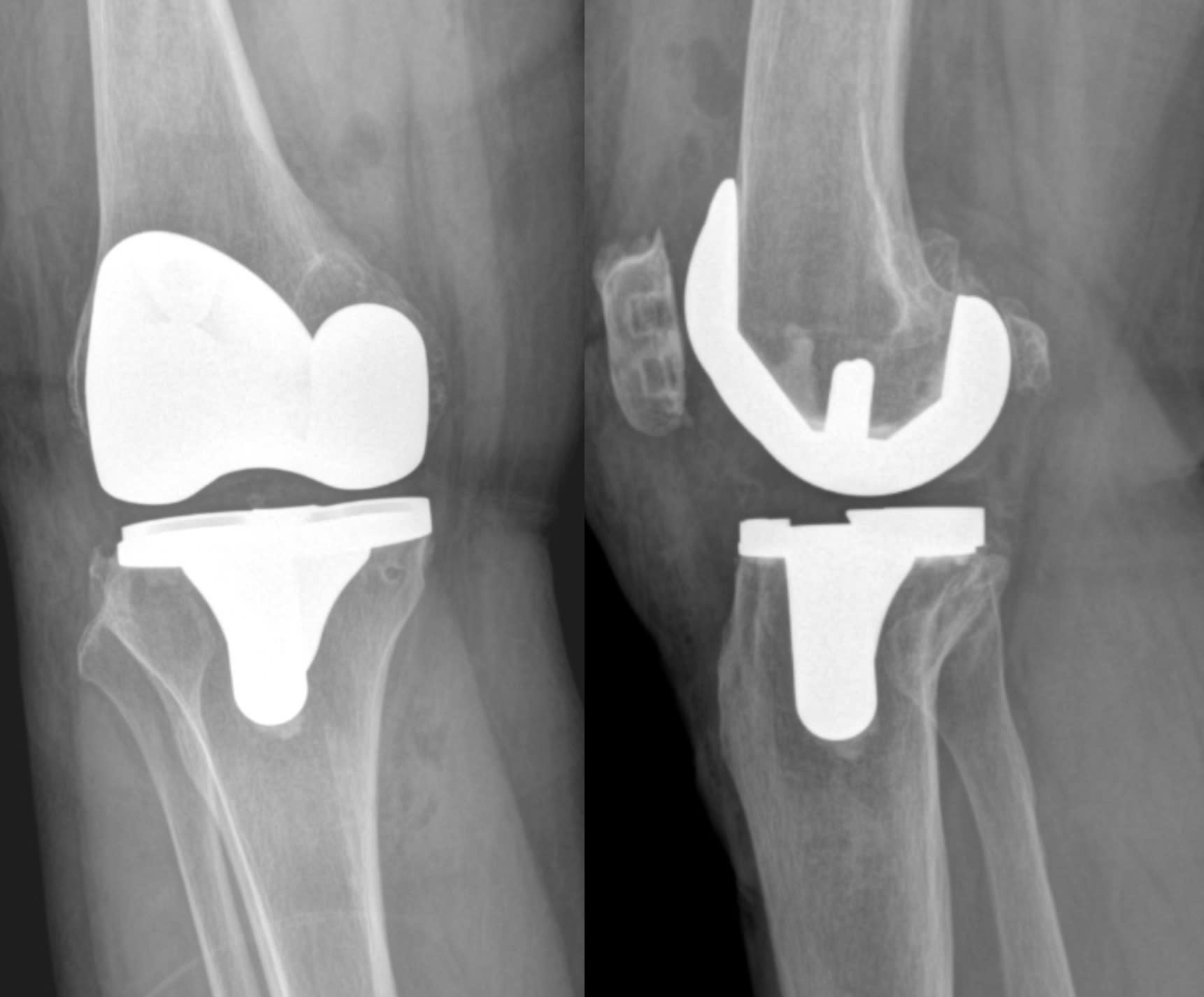Typically, patients undergoing hip replacement are discharged on the same day. For knee replacement patients, the average hospital stay is 3-5 days. This is because the condition often occurs in older individuals with underlying health issues and generally poorer overall health. Knee replacement surgery is also more complex than hip replacement, resulting in greater blood loss. The knee joint has more extensive nerve distribution, making pain management techniques less effective. This significantly complicates post-operative wound care and rehabilitation compared to hip replacement.
"This is the first patient at Tam Anh Hospital to be discharged 24 hours after knee replacement surgery," said Dr. Nguyen Quang Ton Quyen, Deputy Head of the Department of Orthopedic Trauma at Tam Anh General Hospital, Hanoi.
 |
X-ray of Mrs. Ngan's artificial knee joint. Photo: *Tam Anh General Hospital* |
Mrs. Ngan had suffered from bilateral knee osteoarthritis for 10 years, postponing surgery multiple times. Recently, intra-articular injections ceased to be effective, and her pain worsened, making walking difficult and causing sleeplessness.
Dr. Quyen diagnosed Mrs. Ngan with stage 4 osteoarthritis in both knees, with complete loss of cartilage and numerous bone spurs around the joints, reducing range of motion and causing joint deformity. He recommended total knee replacement surgery. To minimize the risk of complications in older patients, the doctor planned staged surgeries, starting with the right knee, with the left knee scheduled for surgery 3 months later. The patient was prescribed anti-inflammatory and nerve pain medication before surgery to help manage post-operative pain.
Mrs. Ngan received spinal anesthesia and mild sedation to stabilize hemodynamics and minimize blood loss. Dr. Quyen used a subvastus approach, fully preserving the patient's muscle. The cartilage lost due to osteoarthritis was replaced with an artificial knee joint. She also received intra-articular injections for pain control, a safe method that doesn't cause muscle weakness and provides effective pain relief for up to 12 hours post-surgery. As a result, she began in-bed exercises just two hours after surgery, started walking after 6 hours, and was discharged after two days.
Two months later, Mrs. Ngan underwent surgery on her remaining knee. This time, the procedure was further optimized, resulting in less blood loss, less soft tissue damage, and reduced pain. She recovered more quickly and efficiently. 4 hours after the second surgery, she began walking with her two new knee joints and was discharged just 24 hours after the knee replacement surgery.
 |
Dr. Quyen performing knee replacement surgery on a patient. Photo: *Tam Anh General Hospital* |
Reviewing the case, Dr. Quyen attributed the patient's rapid 24-hour discharge to optimal pre-operative health preparation. Effective pain management, including pre-, intra-, and post-operative anesthesia and nerve blocks, played a crucial role. Minimally invasive surgical techniques helped preserve the patient's soft tissue, minimizing blood loss. The patient also benefited from early, personalized rehabilitation immediately after surgery, which contributed to her rapid recovery and return to normal activities.
Thanh Long
*The patient's name has been changed.












